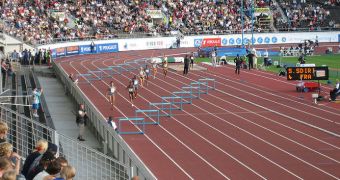Experts may have finally demonstrated that, indeed, people reacting do the same action faster than those who are initiating it on purpose. The finding may help explain Wild West legends that say the first person to draw in a gun fight is usually the one to get shot. According to scientists, there may be a lot of merit behind that statement, and it may all have to do with the way our brains are hardwired.
Experts call this difference the “reactive advantage” and the international collaboration behind this find has managed to determine that its length is equal to roughly 21 milliseconds. This translates into a ten-percent increase of the speed with which a person reacts to a situation, as opposed to initiating the same action voluntarily. The idea that this type of brain response exists was first suggested by Nobel Laureate atomic physicist Niels Bohr, one of the scientists who contributed the most to our understanding of the quantum world, and of the structures of atoms.
“As a general strategy for survival, having this system in our brains that gives us quick-and-dirty responses to the environment seems pretty useful. Twenty-one milliseconds may seem like a tiny difference, and it probably wouldn't save you in a Wild West duel because your brain takes around 200 milliseconds to respond to what your opponent is doing, but it could mean the difference between life and death when you are trying to avoid an oncoming bus!” University of Birmingham experimental psychologist Andrew Welchman, a British researcher, says.
The expert believes that this ability we have may be linked to the neural pathways that are involved in intentional and reactive actions, respectively. Reaction is based on impulses coming mostly from the eye, which are then processed in the visual cortex, and then relayed to the frontal areas of the brain, where motion-control centers are located. In the case of intentional actions, the information is first produced in the decision-making areas of the cortex, and then transmitted back to the frontal section.
“The key idea is that effectively, the brakes get taken off faster when we are making reactive movements so we can get moving faster than when we're making intentional movements. That could be responsible for us being 20 milliseconds quicker when we respond to our opponents,” Welchman concludes. Details of this investigation appear in the February 3 online issue of the respected scientific journal Proceedings of the Royal Society B: Biological Sciences, LiveScience reports.

 14 DAY TRIAL //
14 DAY TRIAL //